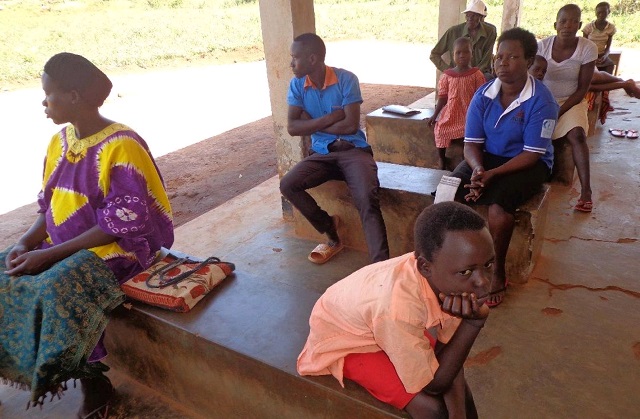
Oyam, Uganda | THE INDEPENDENT | Midwives in different health centers of Oyam district are forcing patients to work on their gardens to get treatment according to The Apac Anti Corruption Coalition-TAAC.
In their report “Citizens Action for improved accountability and public service delivery projects, TAAC says among the things the midwives and health workers of Oyam do is forcing patients who do not have money for bribing to get service to do manual labour in their gardens in exchange for treatment. But the more direct exchange of value for service is extorting money from expectant mothers who visit the health facilities before attending to them.
TAAC also says the Oyam midwives are neglecting their work, leaving it to students doing internship at the health facilities, contrary to the government policy.
The TAAC report particularly accuses health workers at Otwal health center III in Otwal sub county, Ngai health center II in Ngai sub county and Ature health center III in Aber sub county for demanding money from patients.
The report says expectant mothers are charged between Shs 300,000 and Shs 400,000 for cesarean section and they are asked to pay Shs 50,000 or more if they deliver normally. Other illegal charges at the facilities include money for airtime, laboratory fees, gloves, and fueling the ambulance in case of referrals.
The report was presented during the Civil Society Organisation [CSO] advocacy workshop organized by TAAC at Jaril hotel in Oyam town on Thursday.
Tom Opwonya, the Executive Director of TAAC said that apart from extortion, the study also found out that midwives utter vulgar languages to address expectant mothers, whom they sometimes inject with pain killers and also embarrass them.
The report also accused the health workers of taking patients who are not in critical condition to work in gardens of medical workers in exchange for medical services.
Opwonya added that the Outpatient departments at different health facilities in Oyam district are usually out of operation at night, yet health workers report late at work during the day and still leave early.
“The patients are instead often referred to buy drugs from private clinics,” he said, adding that citizens should be sensitized to demand for services and report cases of corruption.
Some patients who talked to Uganda Radio Network but preferred not to be named confirmed paying money for health services.
While responding to the findings, the officers in charges of Ngai HCII, Otwal HCIII and Atura HCIII equally agreed with the findings saying they are working on ways of solving the problems.
Denis Ayoo, in charge of Ngai health center II describes the report as an eye opener. As the administrator of this health facility, he pledged to work tirelessly to handle these issues to better the service delivery.
The Oyam district chairperson, Nelson Adea Akar said such vices remain a big challenge in the health sector. “The district leadership is ready to investigate such allegations but unfortunately, nobody is willing to give us the right information to pin wrong elements,” he said in an interview.
The Oyam district health officer, Dr Thomas Malinga said the management has on several occasions warned health workers against extorting money from patients. “This will not be accepted at all because such ‘isolated’ cases continue to spoil the image of the hospital,” he said.
The Oyam district deputy Chief Administrative Officer-CAO Gertrude Oroma said that issues raised will be investigated and whoever will be implicated shall face disciplinary action.
In September 2017, Uganda’s former Minister of Health, Dr Sarah Opendi disguised herself in a hijab and traveled by boda boda to Naguru Hospital in Kampala. The minister then asked for routine laboratory tests. They should have been given to her free of charge but instead the health workers asked for a bribe.
*****
URN
 The Independent Uganda: You get the Truth we Pay the Price
The Independent Uganda: You get the Truth we Pay the Price



